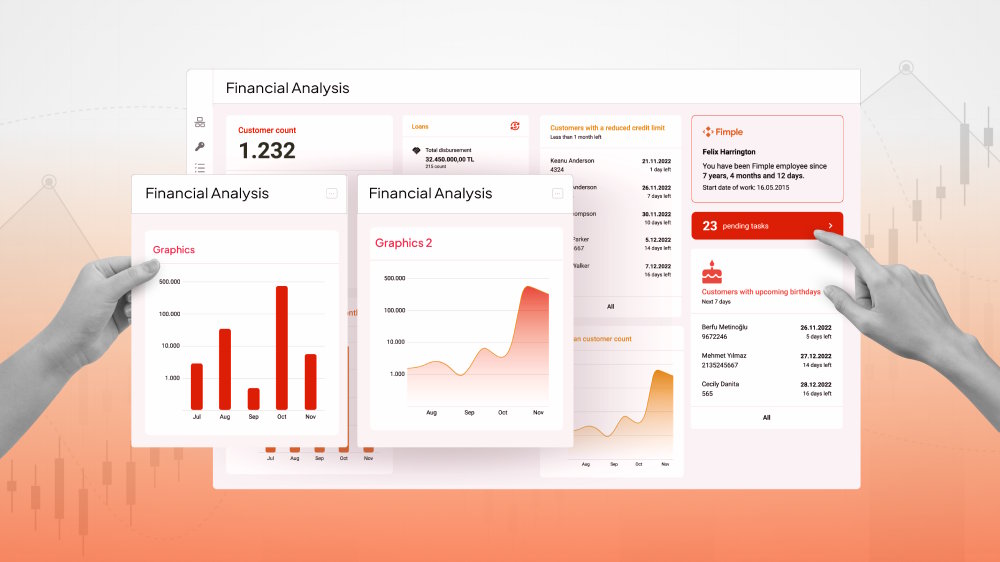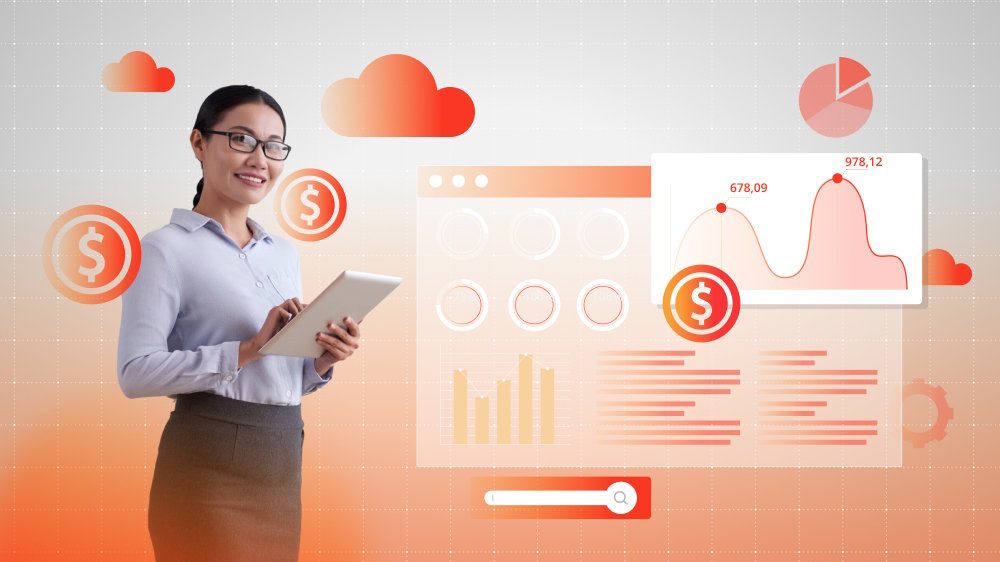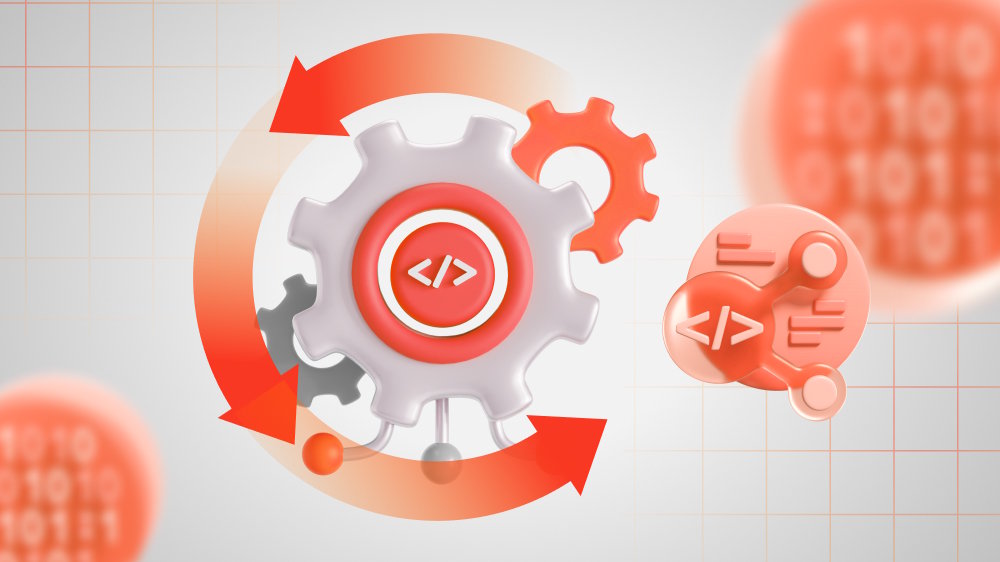
Understand the Transformative Benefits of ERP for Healthcare Providers
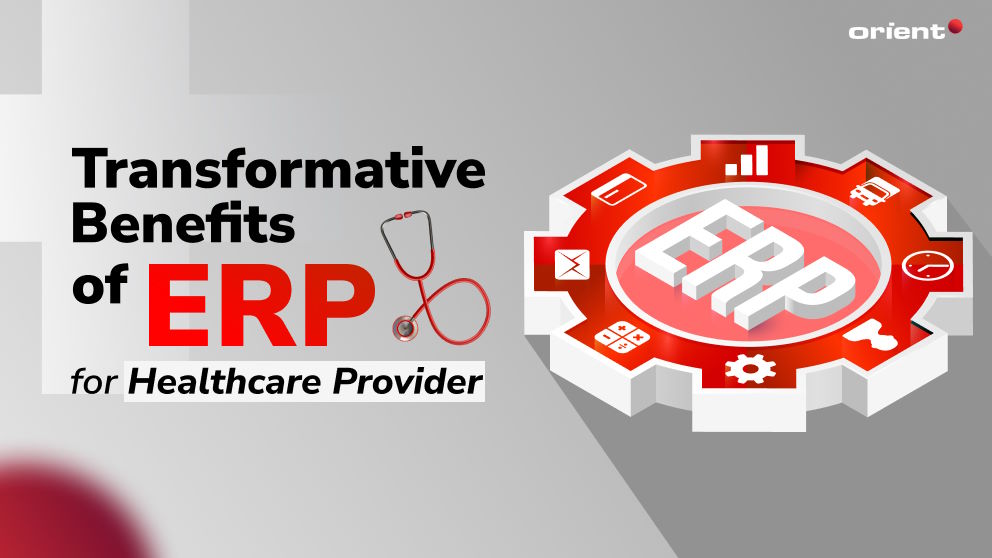
Content Map
More chaptersLike any business, there are many moving parts to running a medical practice. They consist of customer-facing and non-customer-facing employees, such as Medical Receptionists and Doctors and Accountants and Human Resources (HR). Together, these departments work to ensure the practice is not only efficient and profitable but also provides high-quality care and improves patient outcomes while meeting new regulatory requirements.
To achieve maximum visibility, healthcare providers need a single source of truth. For decades, Enterprise Resource Planning (ERP) software has been the most effective way to unify business data and functions. As healthcare providers phase out their legacy ERP software in favor of ERP cloud services, this trend is set to continue – albeit with new challenges to surmount and new possibilities to explore.
You will learn what ERP software is, why ERP is important for healthcare, what the advantages and challenges are for ERP in healthcare, and how to incorporate ERP into your medical practice.
What Is ERP Software?
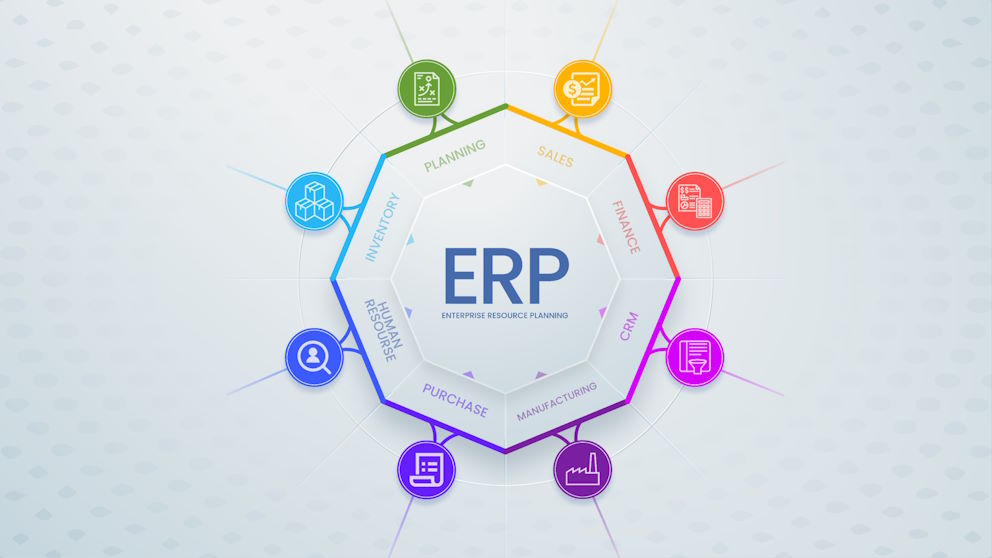
ERP stands for Enterprise Resource Planning. It is a type of software application that helps consolidate all business data and functions into a centralized platform.
With ERP software, authorized users can access the same real-time data and insights at the same time and then use those insights to make informed, data-driven decisions. The most common functions that a business can manage with ERP software include Finance and Accounting, Sales and Marketing, HR, Customer Relationship Management (CRM), Product Development, and Supply Chain Management.
ERP software also allows authorized users to not just access data and functions relevant to their department but also share relevant information with other departments. This helps streamline communication between separate departments, eliminating siloed thinking and fostering a more collaborative workforce.
Traditionally, businesses would locally install ERP software on individual workstations and devices. These days, though, ERP providers host their software on remote data centers (the cloud) and charge customers an ongoing monthly or annual subscription fee for access. Businesses can also customize their ERP software to meet their unique requirements.
Why Is ERP Important for Healthcare?
The use of ERP software in healthcare offers many benefits, such as the ability to gain real-time access to key data. Medical practices can then use this data to make timely clinical decisions, such as responding to emergencies and providing initiative-taking patient care. Health professionals can also use ERP software to monitor employee satisfaction and mental wellness, ensuring medical staff are of sound mind and body.
Meet Increasing Market Demand and Respond to Medical Emergencies
The COVID-19 pandemic took a major toll on medical practices around the world, pushing health professionals to breaking point and limiting access to life-saving medical equipment, supplies, and resources.
ERP software can help improve medical practice productivity and address supply shortages by proactively scheduling medical equipment maintenance, ordering low-supply stock, and anticipating health professional demand based on historical trends and data (e.g., the volume of patient visits during peak periods). Medical practices can also use ERP software to quickly fill skill shortage gaps, request temporary staff from other medical practices, or hire new staff.
Comply With Regulatory Requirements
Healthcare organizations can use ERP software to set regulatory compliance benchmarks. These benchmarks serve as a useful reference point, which healthcare organizations can use to ensure compliance in every aspect of the business.
When configured properly, the ERP software will automatically notify the user of non-compliance, such as misconfigured access controls or outdated software. Health professionals can also update their ERP compliance benchmarks when regulatory standards change.
Improve the Patient Experience and Outcomes
By using ERP software to consolidate all business data and functions into one cloud platform, healthcare professionals can improve the patient experience and outcomes. Doctors and nurses can review a patient’s medical history, assessing past recorded symptoms, treatments, prescriptions, and allergies.
ERP data helps health professionals identify trends and patterns, unlock newfound insights, and recommend initiative-taking treatment to mitigate future health problems. It also helps prevent unnecessary repeat testing (blood tests, screenings, images, and diagnostics), reducing waiting times and fast-tracking treatment. When combined with robust ERP capabilities, cloud computing in healthcare can also help improve patient outcomes.
What are the Advantages and Challenges of ERP for Healthcare?
Although ERP software has the potential to benefit the healthcare industry, there are challenges associated with incorporating the software into medical practices. Understanding these advantages and challenges will help you choose the right ERP software, as you will know what features and services to look for – and what to avoid.
Advantages
Improve Cross-Department Visibility
Today’s ERP vendors host their software in the cloud, which allows any authorized individual to access and use the software. This enables healthcare companies to set up their access controls, where employees and visitors can access only the data (and services) they need to perform their role (for example, the accounting department can only access the financial management dashboard). This makes it easier for different departments – under the same medical practice – to communicate and collaborate in real-time, as they each have access to the same truth source.
Reduce Operational Costs
Medical practices with multiple departments can reduce their operational costs by using ERP software. Instead of subscribing to multiple software applications – to perform different business functions –, healthcare providers need only one ERP software application to satisfy their business needs. They can also integrate ERP software with their existing legacy applications, enabling them to adopt a hybrid cloud environment, preventing the costly and time-consuming disruption of a full cloud migration.
Streamline Internal Processes and Efficiency
Standardizing healthcare data (converting it into a format that any system can understand) allows medical companies to transfer data among staff, departments, providers, and services more easily. They can proactively manage every aspect of their business, such as scheduling preventative maintenance on medical equipment and ordering low-supply stock before running out. Medical organizations can also use automation to streamline manual, repetitive, rule-based tasks, such as invoicing suppliers and sending appointment reminders to patients.
Disadvantages
Upfront Investment and Planning Plus Ongoing Maintenance
Setting up and maintaining an ERP system requires time and effort. Healthcare providers must first evaluate their ERP software needs, including their pain points, target audience, and technical requirements.
From there, providers must research the ERP healthcare market, comparing features, services, and pricing structures, reading professional and customer reviews, and potentially even running trial periods. Performing a partial or full cloud migration to the new service can also be costly, time-consuming, and potentially disruptive to the business.
Interoperability Challenges
In healthcare, data interoperability facilitates the safe and secure exchange of health data between different systems, platforms, applications, and services – regardless of the software. It is easier for healthcare providers and patients to share and receive health data as well as interpret it.
Different countries have different approaches to standardizing health data. In Vietnam, for example, the Ministry of Health has introduced several data interoperability policies and standards, including Circular 54/2017/TT-BYT. Meanwhile, the United States Core Data for Interoperability aims to standardize health data classes nationwide. For this reason, healthcare providers must ensure that their healthcare ERP systems comply with their country’s relevant data interoperability policies and standards.
Data Security and Privacy
Data security in healthcare focuses on protecting patient data and medical practice data. It involves incorporating various cybersecurity measures to prevent data theft, loss, and compromise. It also protects patient records stored in electronic medical records.
Many regional standards set out how healthcare providers must manage sensitive health data, with the Health Insurance Portability and Accountability Act (HIPAA) of 1966 being one of the most well-known. The HIPAA Privacy Rule sets out the patient privacy and confidentiality rules as they apply to healthcare providers, healthcare plans, healthcare clearinghouses, and business associates.
Complying with these standards is essential to not just safeguarding medical practice and patient data but also protecting your practice from fines and penalties.
How to Incorporate ERP Software into Your Healthcare Organizations
To incorporate ERP systems into a healthcare organization, follow these three steps below.
Choose an ERP Vendor or Custom Software Development
An ERP system vendor will supply the necessary software to equip your medical company with ERP capabilities. Most ERP vendors host their software in the cloud, charging users a monthly or annual subscription fee; paying users can access the software over a web browser or standalone app. Healthcare professionals can also assign specific roles to specific users, ensuring they can only access the data, features, and services they need to fulfill their role.
While vendors are a convenient way to unlock an ERP solution, the vendor decides what features and services to add. This may limit a healthcare provider’s ability to upscale, innovate, and compete. Vendors can also raise or modify their pricing structure, making their software less affordable.
On the other hand, custom software development gives healthcare providers the freedom to develop an ERP solution that meets their unique needs. They decide what features and services to include in the software, and they receive ongoing maintenance from the same development team that built the software. Custom healthcare software solutions teams can also build products to comply with regional and industry standards.
Define the Technology Requirements
A reputable vendor or software development team should assess a healthcare company’s technology stack. These include all the platforms, services, and applications necessary to run the ERP systems – and integrate the ERP systems with existing cloud and legacy services. Understanding a healthcare provider’s existing technology stack will make it easier to choose the right programming language, frameworks, libraries, cloud data security solutions, access controls, and more.
Ensure Regulatory Compliance
When incorporating ERP software into a medical practice, ensure that any service meets the latest regulatory requirements. This applies to both vendor and custom-built solutions. Perform a thorough research on the vendor or software development team and ensure they have a deep understanding of the relevant data security, privacy, and sovereignty laws of the relevant region.
Do not be afraid to ask questions during the consultation stage. But also, do not worry if the development team does not have the answers straight away; they should at least be committed to learning and following the relevant standards, regardless of the country or region.
Why Choose Orient Software for Your ERP Solutions
Established in 2005, Orient Software has experience providing first-class software solutions to healthcare clients. Our over 350 IT experts can build, evaluate, and deploy a custom ERP healthcare solution that meets your unique requirements.
How we work is simple but innovative; we employ the Agile methodology, incorporating continuous feedback and innovation during each stage of development, enabling clients to watch the magic unfold and provide valuable feedback, helping the team deliver the perfect solution. Orient Software also specializes in cloud computing, helping healthcare facilities incorporate existing healthcare ERP solutions into their cloud environment.
- Custom ERP software development
- Cloud computing integration
- Dedicated project manager as a single source of contact
- Post-deployment maintenance and support.
For more information about Orient Software’s ERP healthcare solutions, contact us today.


